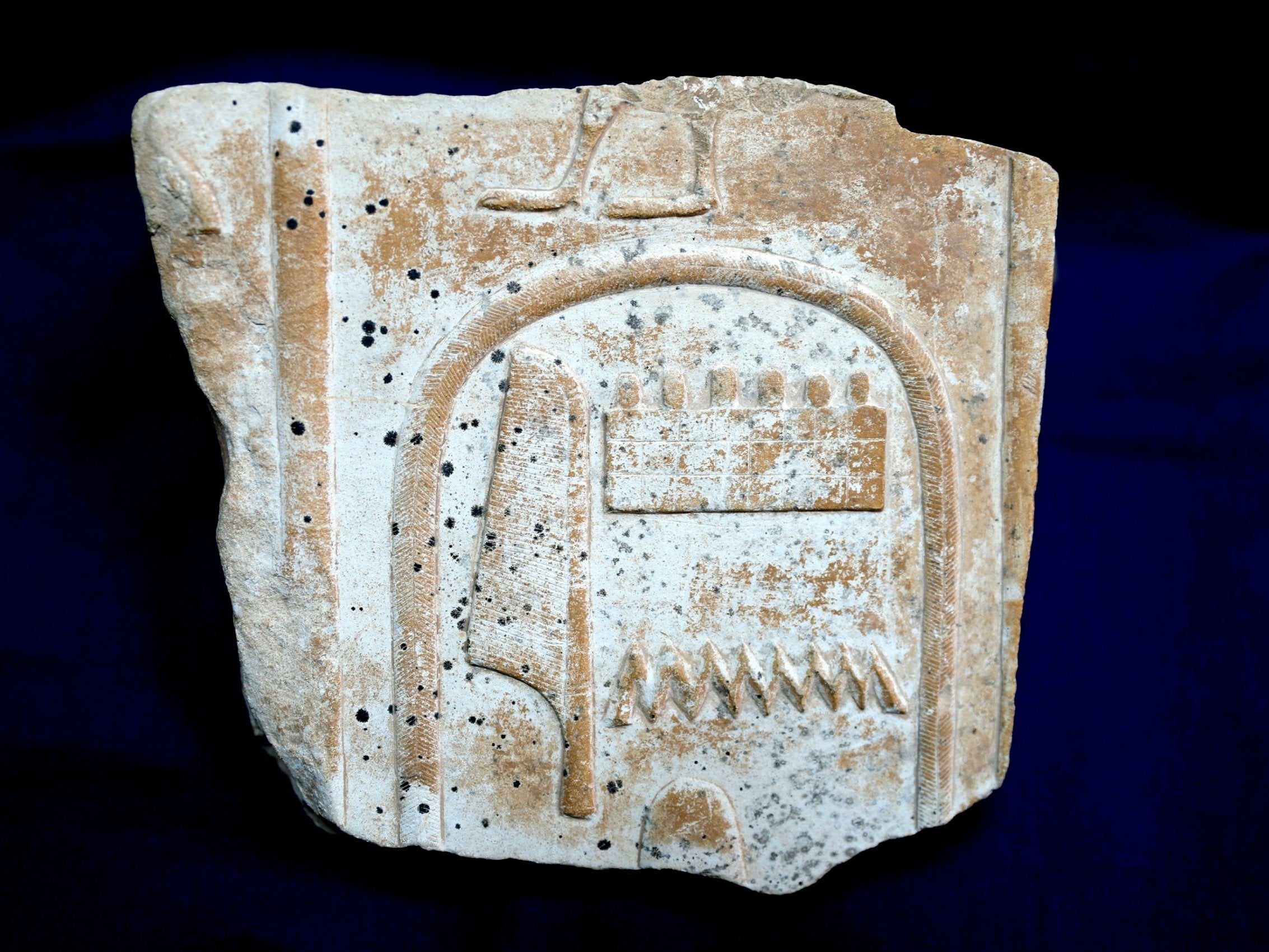Egypt recovers smuggled ancient artefact discovered in London auction
Stone relief bearing cartouche of Pharaoh Amenhotep I was stolen from open air museum in 1988

Your support helps us to tell the story
From reproductive rights to climate change to Big Tech, The Independent is on the ground when the story is developing. Whether it's investigating the financials of Elon Musk's pro-Trump PAC or producing our latest documentary, 'The A Word', which shines a light on the American women fighting for reproductive rights, we know how important it is to parse out the facts from the messaging.
At such a critical moment in US history, we need reporters on the ground. Your donation allows us to keep sending journalists to speak to both sides of the story.
The Independent is trusted by Americans across the entire political spectrum. And unlike many other quality news outlets, we choose not to lock Americans out of our reporting and analysis with paywalls. We believe quality journalism should be available to everyone, paid for by those who can afford it.
Your support makes all the difference.Egypt says an ancient artefact has been returned after it was illegally smuggled out of the country to the UK, where it was found on sale.
The artefact is a carved stone tablet with the cartouche (royal emblem) of King Amenhotep I, who reigned from 1526 to 1506 BC.
According to Egypt’s Antiquities Ministry in Cairo, the carved relief had been found for sale at a London auction house.
The item had originally been on display at the open-air museum in the Karnak Temple Complex in the city of Luxor, but was stolen in 1988.
The ministry did not say how the artefact was originally smuggled out of the country.
The statement on the Antiquities Ministry’s website thanked “the concerted efforts of all the concerned British authorities and the Egyptian Embassy in London until it succeeded in stopping the sale of the piece”, when it was found in September 2018.
Egypt has stepped up efforts in recent years to stop the trafficking of its antiquities.
It has warned foreign museums that it will not help them mount exhibits about ancient Egypt unless they return smuggled artefacts.
In November, two ancient Egyptian sarcophaguses were found in Luxor by a French archaeological team.
Egyptian authorities opened one, while the French team which found them opened the other.
It was the first time a previously unopened sarcophagus was opened before international media.
The well-preserved 3,000-year-old remains of a woman were found inside.
Join our commenting forum
Join thought-provoking conversations, follow other Independent readers and see their replies
Comments